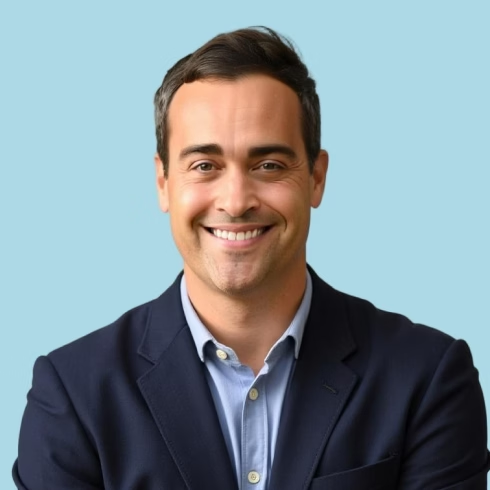Sharing the fight: How the CancerBuddy app is transforming cancer support


Approximately 2 million Americans are diagnosed with cancer every year. Even with the support of family and friends, receiving this diagnosis (or supporting a loved one through it) can feel like an incredibly lonely experience. Luckily, there’s a new app that’s trying to change that.
On this week’s episode, Chris and Gina sit down with Bone Marrow & Cancer Foundation Founder and CEO Christina Merrill to discuss how and why she developed CancerBuddy, the first peer-support app for the cancer community. Check out the highlights below, then dive into the full episode to learn more.
Who is the Bone Marrow & Cancer Foundation?
Since its founding by Christina Merrill in 1992, the Foundation has grown from an organization focused on supporting bone marrow transplant patients to providing support for all cancer patients undergoing traditional therapies like chemotherapy, radiation, or surgery. It offers various forms of assistance, including financial support, patient navigation, educational resources, caregiver support, survivor support, and peer connections.
Partnership with Airbnb
People facing cancer, unfortunately, often need to travel to state of the art treatment facilities to receive the best care. Patients may need to travel to other cities or states to receive the care they need for their specific cancer diagnosis. To help ease this financial burden, the Foundation collaborated with Airbnb in 2019 and 2020 to provide free housing and accommodations for cancer patients needing to travel for treatment and their families. This initiative gave cancer patients and their loved ones one less thing to worry about by providing safe and comfortable accommodations, especially during the COVID-19 pandemic. The Bone Marrow & Cancer Foundation is working on bringing this program back, as it was life-saving to so many patients.
Conceptualizing the CancerBuddy app
Cancer care continues outside of hospital treatment rooms and clinics, and human connection is crucial when battling this disease. The CancerBuddy app was actually conceptualized around this and sprung from Christina’s own personal experience with dating apps. She recognized the need for cancer patients, survivors, and caregivers to communicate with peers who share these experiences but found very few places for these individuals to connect. The app provides a secure and supportive environment for these connections to take place.
App design and development process
The development process for the CancerBuddy app included input from focus groups of current patients, survivors, social workers, nurses, and physicians. Collaboration with a dedicated design team and the active refining of features based on user feedback was paramount to creating an app that is fit for purpose.
What makes CancerBuddy unique?
You might be thinking, “There are plenty of Facebook groups for every niche under the sun, so why not just use those?” Differing from the general use of social media and drawing on its original inspiration of dating apps, CancerBuddy hosts a variety of unique, valuable features, including personalized matchmaking based on specific criteria such as age, gender, location, diagnosis, treatment center, and race, which fosters deeper connections among users facing similar challenges.
Impact and future goals
Now that’s what we call tech for good. CancerBuddy has had a profound impact in providing emotional support and a sense of community for cancer patients, survivors, and caregivers. The future will see an expansion of the app's reach internationally and continued enhancement of its features to meet the evolving needs of its users.
As always, don’t forget to subscribe to Catalyst wherever you get your podcasts. We release a new episode every Tuesday, jam-packed with expert advice and actionable insights for creating digital experiences that move millions.






